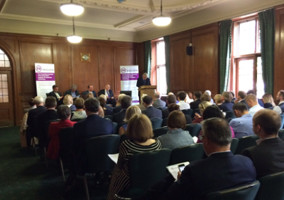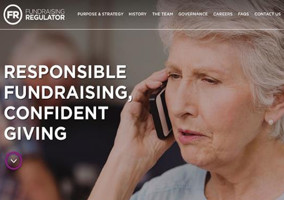The five charities who haven’t contributed to the Fundraising Regulator’s start-up costs have refused to confirm whether or not they will pay the organisation’s fundraising levy.
The five charities who didn’t contribute to the Fundraising Regulator’s start-up costs: The British Museum, Médecins Sans Frontières, RNIB, Roman Catholic Diocese of Westminster and the Tate, have all been approached by Civil Society News to ascertain whether or not they will consider paying the regulator’s tiered levy, given their failure to contribute to its start-up costs.
Four of the charities have responded, only the British Museum has yet to provide a statement.
James Kliffen, head of fundraising at MSF UK, told Civil Society News that the subject of the Fundraising Regulator’s levy would be raised at the charity’s next board meeting in September. He would not confirm whether or not the board was likely to acquiesce to paying it.
He said that the key ingredient to MSF’s fundraising success was how little it actually asked its supporters for donations, “we might contact them once a year for an appeal. We do this because that’s what our supporters want,” and that the organisation was loathe to ask purely to find money to fund the regulator.
“Our starting point is always the wishes and the needs of our supporters. The work that we do relies on the generosity of those individuals”. He also said that the initial cost of £15,000 requested by the Fundraising Regulator represented a “substantial” outlay.
Lesley-Anne Alexander, chief executive of RNIB, said that the charity would make a decision on whether or not to pay the levy “when asked to do so” by the Fundraising Regulator. A further statement from the organisation has yet to be provided.
A spokeswoman from the Tate, the only charity that outright refused to contribute to the start-up costs of the Fundraising Regulator, welcomed the creation of an independent regulator for the sector, but said that it was already adequately regulated by the Department of Culture, Media and Sport.
“Tate is an executive non-departmental public body sponsored, and already regulated for charity law purposes, by DCMS. The Institute of Fundraising approached Tate seeking contribution to start-up costs for the new Regulator. Tate was unaware that only a few, benchmark charities had been approached.
“Tate fully supports the idea of a Regulator, but because its fundraising does not include the activities covered by the Etherington Review recommendations and it is already regulated, it was not clear that it would be appropriate to contribute. Conversations with the Fundraising Regulator continue, exploring these issues further.”
A Fundraising Regulator spokesman confirmed to Civil Society News that the organisation was “in ongoing discussions” with the DCMS. He said that the signing of a Memorandum of Understanding was not yet being discussed, but was a possibility in the future.
The British Museum, who is also effectively governed by the DCMS, did not contribute a statement.
A spokesman for the Roman Catholic Diocese of Westminster referred Civil Society News to its ‘Ethical Fundraising Statement’.
The statement says that “all fundraising activities must be positive in nature, dignified in approach, respectful in methods used, and will clearly state our gratitude for giving, and utmost respect for those deciding not to give”.
It also says that the RCDOW will “abide by all aspects of UK law” and the “standards set forth by the Charities Commission [sic] of the UK Government, and the guidance set by the UK Institute of Fundraising”.
The statement claims that the Diocese of Westminster does not use “telephonic solicitations” or third-party telemarketing firms or agencies.
Its spokesman did not respond when asked whether or not it would alter its statement to reflect the role of the new regulator.
Related Articles












